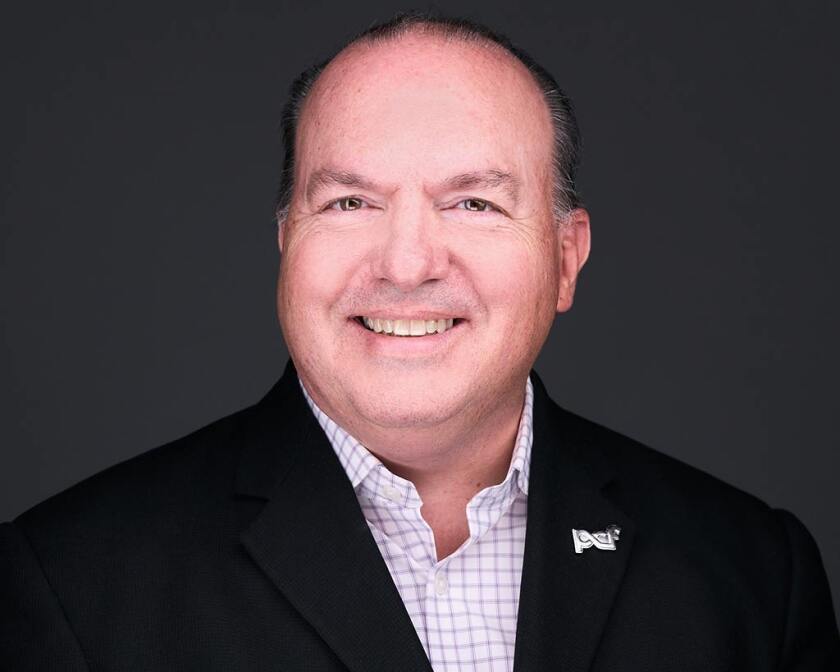Small business owners who got Paycheck Protection Program loans could qualify for big write-offs from their rescue money, amounting to what Treasury Secretary Steven Mnuchin has called a tax-break “double dip.”
The COVID-19 relief package set for a vote in Congress would clarify that business owners can deduct expenses paid for with PPP loans, which can be forgiven by the government without incurring a tax. The deduction benefit could generate more than $100 billion in tax savings for business owners, according to Brookings Institution estimates.
Sammy is the founder and CEO of YuLife, a tech-driven insurance company on a mission to inspire life by providing group insurance, wellbeing, and rewards in one simple app. He originally built Policy Portfolio plc, the first market maker in traded endowments and led the flotation of the company on the full London Stock Exchange. He then went on to become the founding CEO of PruProtect (now VitalityLife), which was the first life insurance company in the UK to reward healthy living. Sammy holds a degree in computer science from Imperial College London.
A 37-year insurance industry veteran and a leader in the cyber insurance field, Keith Savino is the National Cyber Practice Leader with PCF Insurance Services, as well as a Principal and Managing Partner with Broadfield Insurance. Keith is an active member with various organizations, including a member of the Leaders Council for the Association of User Group Information Exchange (AUGIE), past President for the National Association of Professional Insurance Agents, former Board of Director for ACORD, former Chair for NetVU, Advisory Board member for Certificial, former Advisory Board for IVANs, plus many other organizations.
Peter McMurtrie is a partner of the insurance practice for West Monroe, a global business and technology consulting firm. Peter has C-suite experience across a variety of insurance disciplines including sales, marketing, claims, customer interactions, and subsidiary oversight—including extensive interaction with and presentations to boards of directors. His three decades of experience covers all types of insurance—from core product lines of personal and commercial Insurance to ancillary lines like accident and health, pet, travel, and medical stop loss products. Peter joined West Monroe from Nationwide Insurance, where he was president of Property & Casualty Commercial Insurance.
The legislation would override Mnuchin and the IRS, who have blocked businesses from writing off rent, utilities and other business expenses paid for with tax-free money. The agency says the Tax Code prohibits that sort of doubling up of tax benefits.

Lawmakers from both parties, including the top-ranking Democrats and Republicans on both the House and Senate tax committees, said they intended for business owners to qualify for those write-offs when they created PPP loans. The IRS said the law didn’t specify that. Congress could pass the new legislation as soon as Monday.
The provision amounts to a huge win for small business owners, with some firms potentially ending up with a negative tax rate on their PPP money — meaning the tax benefits outweigh the amount of the loan. For business owners paying the top tax rate, it generally means they can save as much as $37 on their taxes for every $100 of tax-free PPP money they received.
Second round
The $2.3 trillion bill providing COVID-19 relief and government funding for the fiscal year into 2021 includes $284 billion in additional funding for PPP loans, which were designed to limit a wave of small-business failures that could cripple the economy. The plan lets some businesses apply for a second round of funding if they can show losses during the pandemic. Deductions are allowed on second-round loans as well.
Kevin Kuhlman, vice president of federal government relations at the National Federation of Independent Businesses, said the move by Congress to make the break explicit will help PPP recipients cope with “significant cash flow problems” when tax filings are due in April.
Many small business owners may by then be scrambling to establish reopening plans as the COVID-19 vaccine distribution expands. Trying to determine what can and cannot be deducted from income with regard to PPP loans is “the last thing they need,” Kuhlman said.
Steve Rosenthal, a senior fellow at the Urban-Brookings Tax Policy Center, said that the IRS made the right policy decision, and that Congress is off base. It makes “no sense” to allow a deduction for a reimbursed expense, because the business ends up in a better position tax-wise than if it had never incurred the cost, he said.
‘Huge giveaway’
Allowing the deduction is a “huge giveaway to the richest Americans and there is no one pushing back on this — it’s really quite absurd,” he said. He calculated about $120 billion in extra tax write-offs.
That amount isn’t reflected in the COVID-19 relief and U.S. government funding legislation currently under consideration. That’s because, for budget counting purposes, it’s considered to be a fix to old legislation, rather than the establishment of a new tax break.
Rosenthal said there are some sympathetic cases of small businesses, but the best way to help them is through more direct aid, rather than an “artificial incentive through an extra deduction.”
Tax consultants said the move will help clients stay in business.
Brian Newman, a partner and practice leader of CohnReznick’s Federal Tax Services, said those include a restaurant-equipment manufacturer. Without PPP money, many “may have either been shut down for a period of time, or shut down completely,” he said.
For small farmers in Iowa that Kent Vickre, state coordinator for the Iowa Farm Business Association works with, the provision will help lower their tax liability.
“Every dollar helps. I think people with adjusted cash flow, this would be a wonderful, wonderful gift,” Vickre said.



